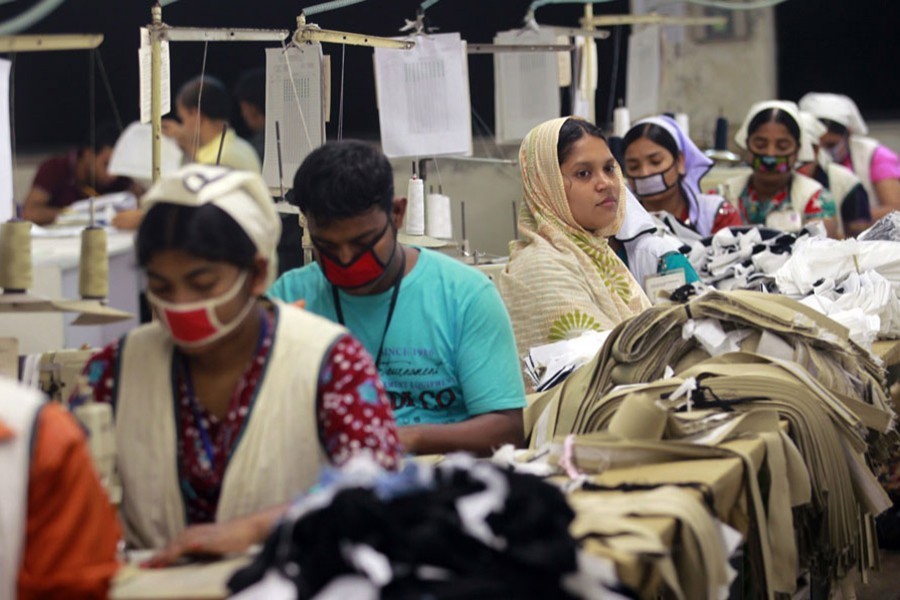The government is learnt to have drafted the long-awaited guideline to provide jobless workers of export-oriented industries with cash support through its social safety net programme. According to the plan, workers who lost their jobs to pandemic-induced layoffs of readymade garment (RMG), knitwear, footwear, leather goods and finished leather factories since March and are still unemployed will qualify for the cash help. And, the cash assistance will be worth Tk 3,000 per month for each beneficiary for three months.
Notably, the programme beneficiaries will be those workers who served until February in such factories as active members of the apex trade bodies representing the apparel, knitwear footwear, leather goods and finished leather sectors. First, the idea was to make the cash support available to the intended jobless workers in the months of June, July and August. In fact, that was the original intent of the European Union (EU) and German grants --- the source of the cash support fund ---worth 113 million euros. Also, it was thought that the fund would go to help some one million workers fired from the RMG units whose shipments or supply orders were cancelled by the Coved-hit EU buyers.
Actually, the amount was part of a total EU-German grant package worth 334 million euros meant to help the government in its effort to implement pandemic-response programmes. Obviously, this is a welcome piece of news for the distressed jobless workers and their families. But precious five months have meanwhile gone over fixing the modalities of the safety net programme before making the money available to the targeted end users. So far, a correct figure is lacking of how many workers did lose jobs from the industries. In fact, the government and the apex trade bodies have different figures in this regard. So, it is yet another issue that remains to be settled before a controversy-free list of beneficiaries could be prepared. Evidently, it is a real hurdle to be overcome to enable smooth delivery of the cash handouts to the intended beneficiaries.
As the plan goes, factories will prepare a primary list of workers they terminated. The trade bodies that have those factories as members would then scrutinise the lists before forwarding those to the Director General, Department of Labour, DG DoL. The latter would finalise the beneficiary list as recommended by an evaluation committee. But some workers' rights bodies have objected to the entire process of listing the retrenched workers fearing it would deprive the genuine beneficiaries of their due. They even expressed reservations about the committee that is supposed to oversee the cash delivery to the listed beneficiaries through bank or mobile accounts.
An eight-member programme implementation committee (PIC) with DG DoL at its head is reportedly going to be formed for the purpose. Since other PIC members are only industry representatives, the labour rights groups are critical of it. In their view, the PIC lacks representation from workers. Admittedly, this is an issue to be resolved within the shortest possible time. Here, one needs to keep in mind that getting the cash help in time is a bread-and-butter issue for the intended beneficiaries. Thus it requires that the government consider the situation with utmost sympathy and expedite the cash support programme's implementation process. The beneficiaries in question have meanwhile waited much too long for the emergency cash support. It should now be over.


